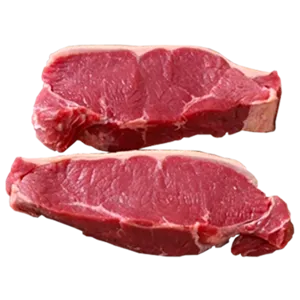Vitamin B6 is water-soluble vitamin that is required for protein, fat, and carbohydrate metabolism. It widely supports the activity of the Nervous System and helps prevent the accumulation of homocysteine in the blood, thus significantly lowering the risk of developing coronary heart disease.
• Fatigue and tiredness
• Malaise (a general feeling of being unwell)
• Anemia (microcytic Anemia)
• Extra systoles (known as Palpitations or skipped heart beat)
• Skin problems such as Eczema or seborrheic dermatitis
• Skin symptoms (rash, itchiness, redness)
• Seizures (a sign of severe Vitamin B6 deficiency)
• Drowsiness
• Nervous System disorders (Depression, confusion, convulsions and seizures)
• Sore Tongue
• Cognitive problems (development of Alzheimer’s Disease and other forms of Dementia)
• Increased pro-inflammatory markers
• Increased blood homocysteine (a marker for cardiovascular disease)
Note:
* The RDA is 1.3 mg/day for adults aged 19–50.
* Pyridoxine status is measured by using plasma 5-pyridoxal phosphate (a value of 20 nmol/L or higher is adequate).
* Being a water-soluble vitamin, Pyridoxine dissolves in Water. Any excess is rapidly eliminated through urine.
* Alcohol consumption, diseases of The Liver and Thyroid problems, malnutrition, Diabetes, HIV can all deplete our body of Vitamin B6.
Health Benefits of Vitamin B6





Cancer & Tumor Prevention
• Vitamin B6 has a potent Anti-Inflammatory effect (can efficiently reduce inflammation), thus prevent potentially life-threatening medical conditions.
Note:
* Epidemiological research suggests that male Smoking with higher serum levels of Pyridoxine have a lower risk of Lung Cancer.
Foods & Cancer






Energy
• Pyridoxine ensures the proper distribution of sugar and Starch and actively participates in the production of Amino Acids.
Note:
* Glycogen being a form of Starch stored in our muscles and used as Energy source during physical exercises.
Foods & Energy



Immune System
• Vitamin B6 stimulates the Immune System by supporting normal cell growth (or cell activity), supporting proper functioning of phospholipids, Lipids that form cell membranes, and necessary for the formation of both DNA (a major component of DNA nucleic acids) and Amino Acids (the basis for Amino Acids synthesis), thus it helps create new cells in the body.
• Pyridoxine maintains healthy Lymphoid organs (spleen, thymus, Lymph nodes, tonsils, Digestive tract) which produce sufficient white blood cells or leukocytes, thus protecting the body against Infections and diseases.
Note:
* Amino Acids form Proteins.
Foods & Immune System






Metabolism
• Pyridoxine helps maintain a healthy Thyroid and actively participates in the processes of absorption of Selenium (a crucial nutrient for good health).
• It supports Carbohydrate synthesis by helping to break down Carbohydrates in order to produce Energy for various body functions and is responsible for glycogen synthesis. Vitamin B6 can also be synthesized in the lower gut.
• Its lack alters normal Thyroid function.
Note:
* Thyroid Hormone imbalances are a sign of Vitamin B6 (and Selenium) deficiency.
* Vitamin B6 helps us absorb Selenium which is necessary for the production of several types of Thyroid Hormone and is required for the good functioning of all cells that work with Thyroid Hormone.
Foods & Metabolism








The Brain & Nervous System
• Pyridoxine supports the activity of the Nervous System as its important for keeping Hormones balanced and healthy, while also increasing the quantity of oxygen transported to cells and tissues during more intense physical activity.
• Adequate intake of Pyridoxine helps us cope with Stress more easily.
Foods & Nervous System


Foods Rich in Vitamin B6 (Pyridoxine)
* The Order is from the Highest Level of Vitamin B6 [Pyridoxine] Concentration.

1)
Rice Bran

2)
Sage (Ground)

3)
Pepper (Cayenne)

4)
Tarragon

5)
Pepper (Paprika)

6)
Savory

7)
Bay Leaves

8)
Rosemary (Dried)

9)
Pistachio Nuts

10)
Nuts

11)
Chlorella

12)
Sunflower Seeds

13)
Basil (Dried)

14)
Wheat Bran

15)
Wheat Germ

16)
Garlic

17)
Moringa Leaves

18)
Marjoram (Dried)

19)
Safflower Seeds

20)
Acai Berries

21)
Liver (Beef)

22)
Oregano

23)
Liver (Turkey)

24)
Saffron

25)
Yellowfin Tuna

26)
Parsley (Dried)

27)
Liver (Lamb)

28)
Celery Seeds

29)
Liver (Chicken)

30)
Tuna Fish (Skipjack)

31)
Wild Atlantic Salmon

32)
Beef

33)
Chicken

34)
Turkey

35)
Potatoes

36)
Cod Fish

37)
Bananas

38)
Halibut

39)
Spinach

40)
Apples




